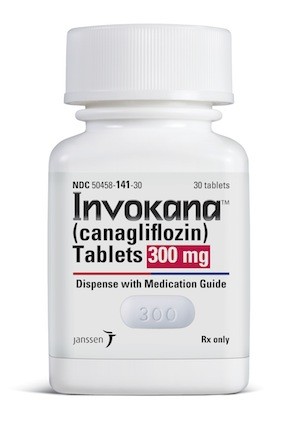June 15, 2015 — New diabetes drugs in the SLGT2 inhibitor class have been associated with 101 cases of diabetic ketoacidosis worldwide as of May 19, according to a warning from the European Medicines Agency (EMA).
SGLT2 inhibitors work by blocking sodium-glucose cotransporter-2, which controls blood-sugar levels by helping the kidneys remove excess glucose in urine. Over half a million people have taken these medications since Invokana hit the market in March 2013, according to the EMA.
All of the cases were serious and some patients had to be hospitalized. The EMA warns:
“Although diabetic ketoacidosis is usually accompanied by high blood sugar levels, in a number of these reports blood sugar levels were only moderately increased. These uncharacteristic blood levels could delay diagnosis and treatment.”
In May, the U.S. Food and Drug Administration (FDA) reported that 20 cases of ketoacidosis had been linked to SGLT2 inhibitors in their first year on the market. All of the victims were hospitalized. The FDA also noted that blood-sugar levels were not very high in some cases.
SGLT2 inhibitor diabetes drugs include:
- Invokana (canagliflozin)
- Invokamet (canagliflozin and metformin)
- Farxiga (dapagliflozin)
- Xigduo XR (dapagliflozin and metformin extended-release)
- Jardiance (empagliflozin)
- Glyxambi (empagliflozin and linagliptin)
Do I have an Invokana Lawsuit?
The Schmidt Firm, PLLC is currently accepting Invokana induced injury cases in all 50 states. If you or somebody you know has been diagnosed with diabetic ketoacidosis, you should contact our lawyers immediately for a free case consultation. Please use the form below to contact our Defective Drug Litigation Group or call toll free 24 hours a day at (866) 920-0753.
Attention Lawyers: We consider a referral from another law firm to be one of the greatest compliments. If your firm is interested in referring us a case or for us to send you a list of previous award judgments and/or average referral fees, please visit the Lawyer Referral section of our website.


 The Schmidt Firm, PLLC has been recognized as one of the nation’s leading plaintiffs' law firms and handles cases in all 50 states. We are very proud of our legal achievements, but equally self-respecting of our firm's reputation for providing personal attention to each and every client we represent.
The Schmidt Firm, PLLC has been recognized as one of the nation’s leading plaintiffs' law firms and handles cases in all 50 states. We are very proud of our legal achievements, but equally self-respecting of our firm's reputation for providing personal attention to each and every client we represent.

